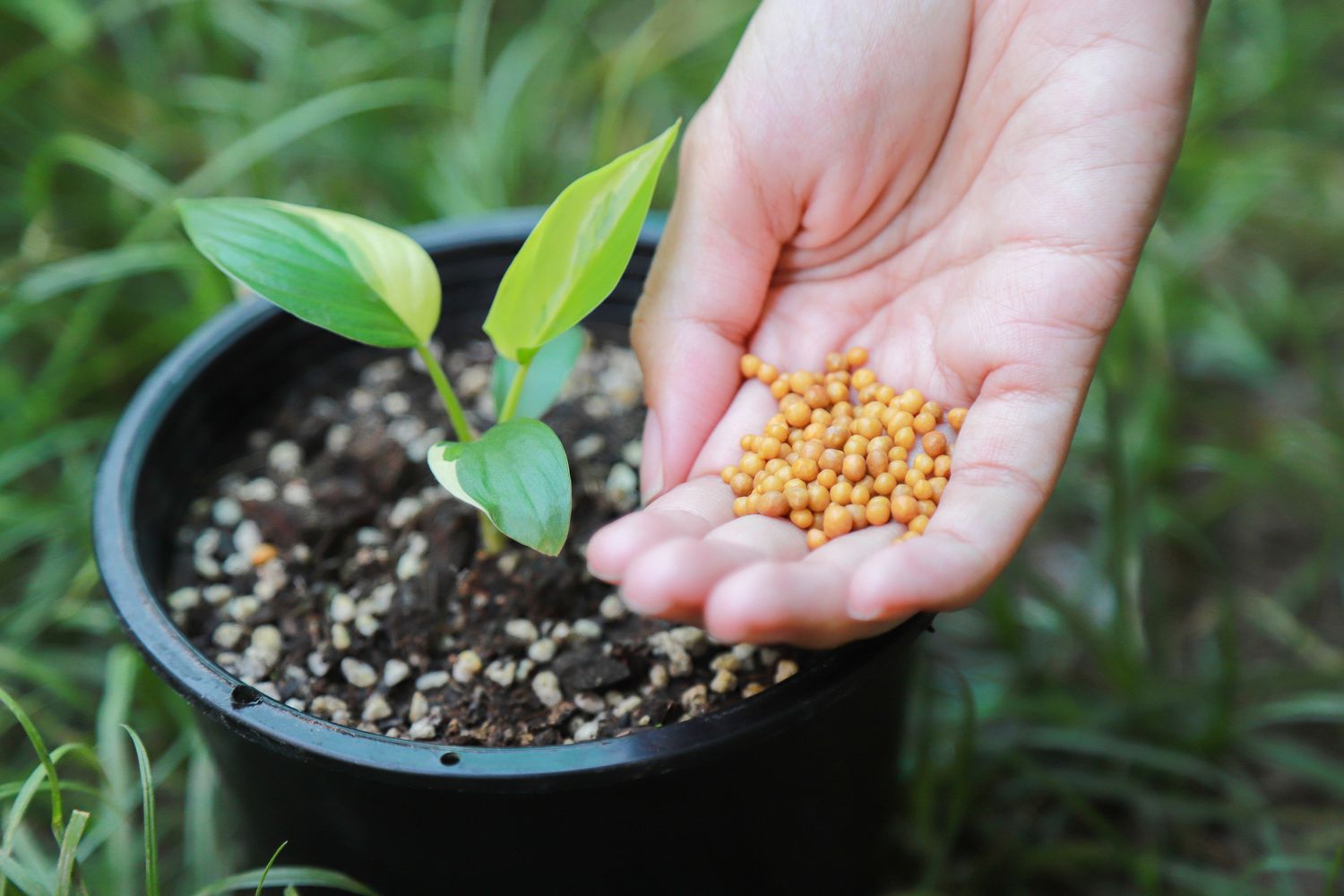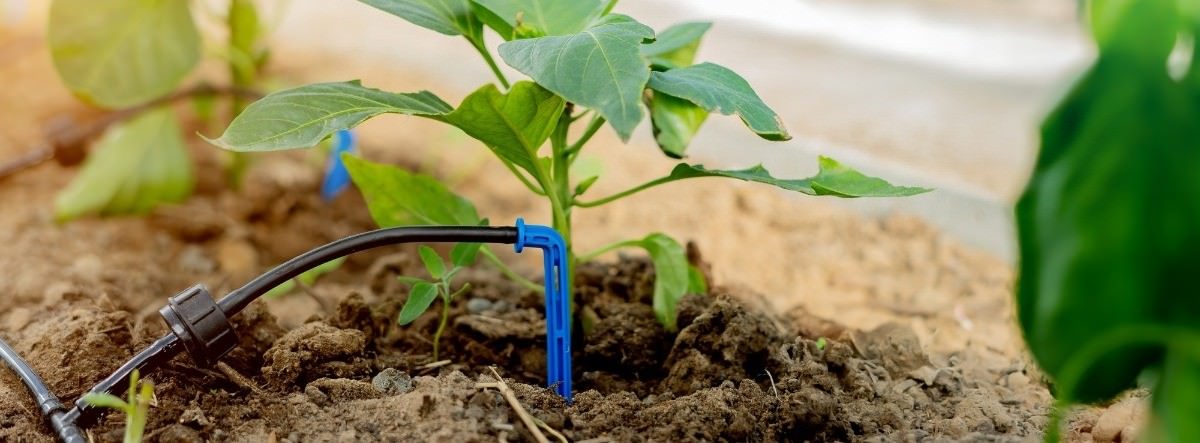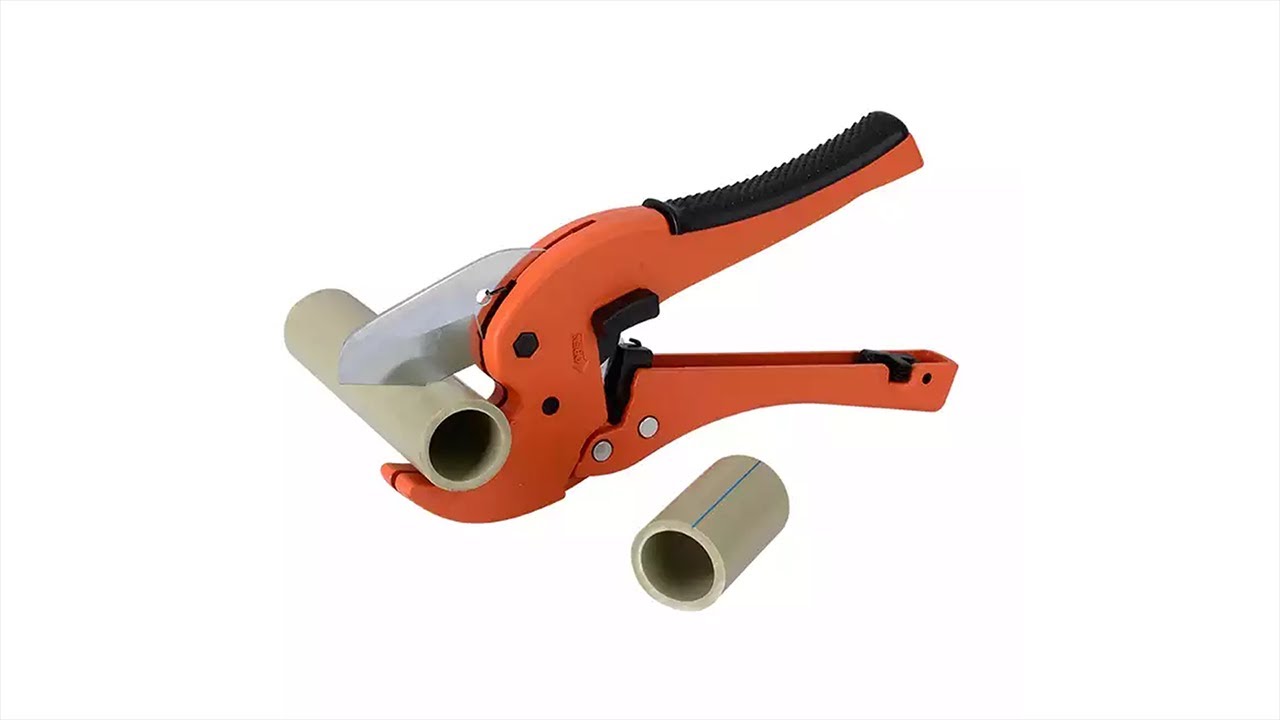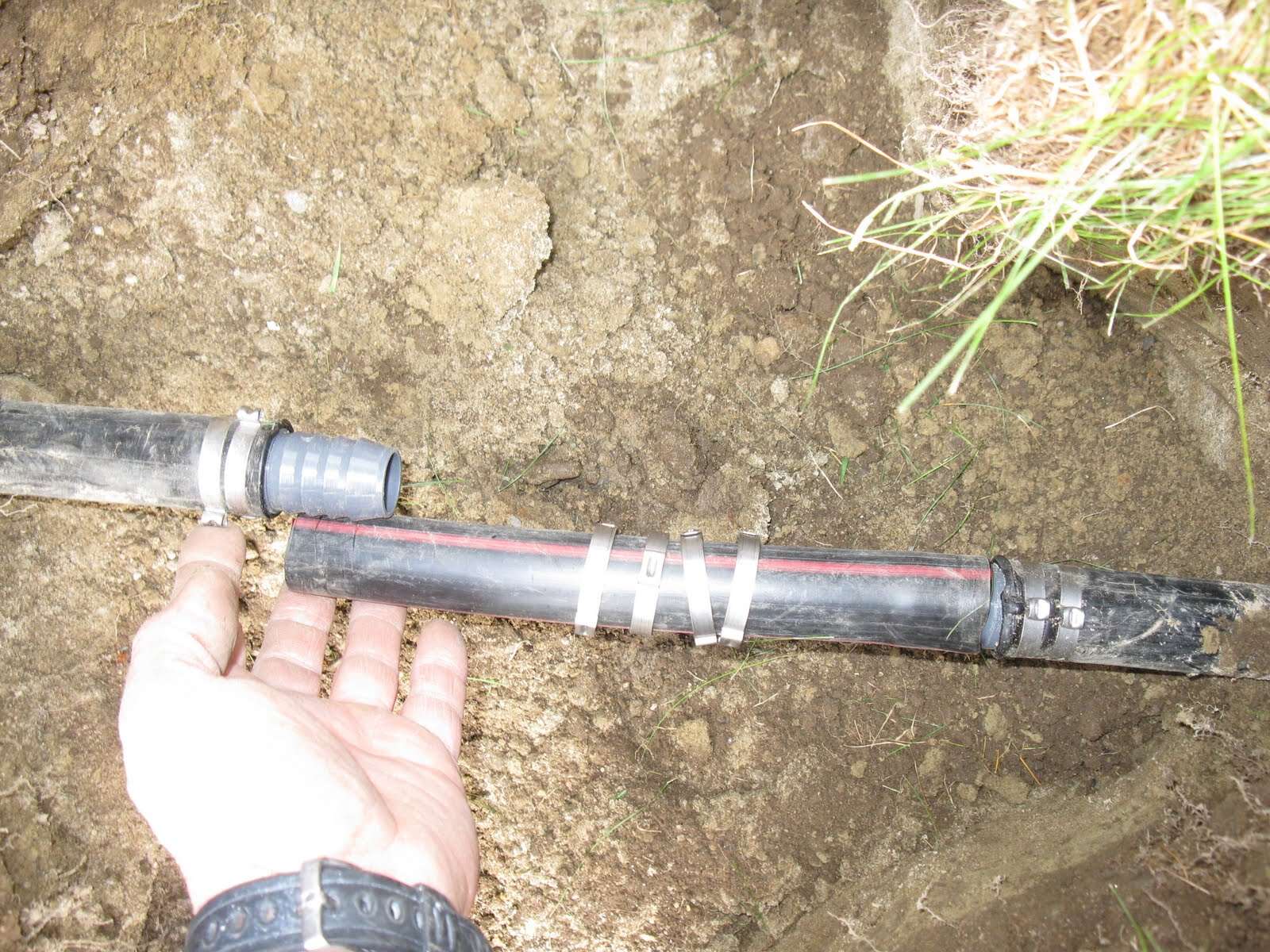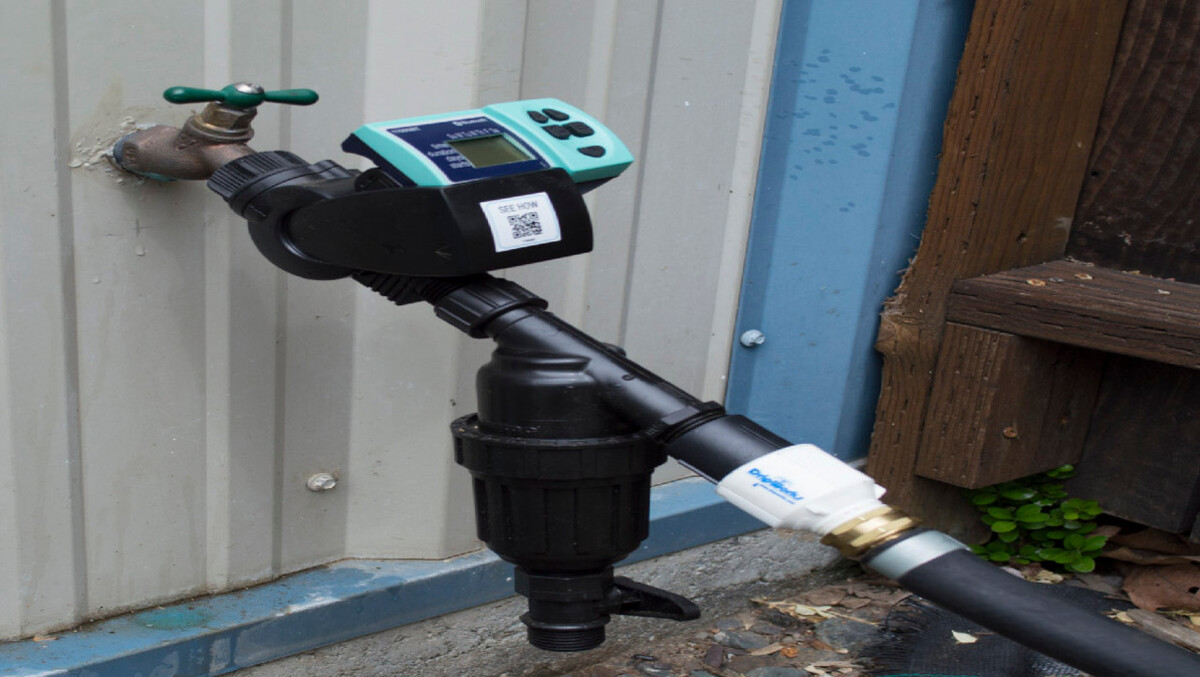Home>Gardening Basics>Tools and Equipment>What Type Of Pipe Is Used For Irrigation
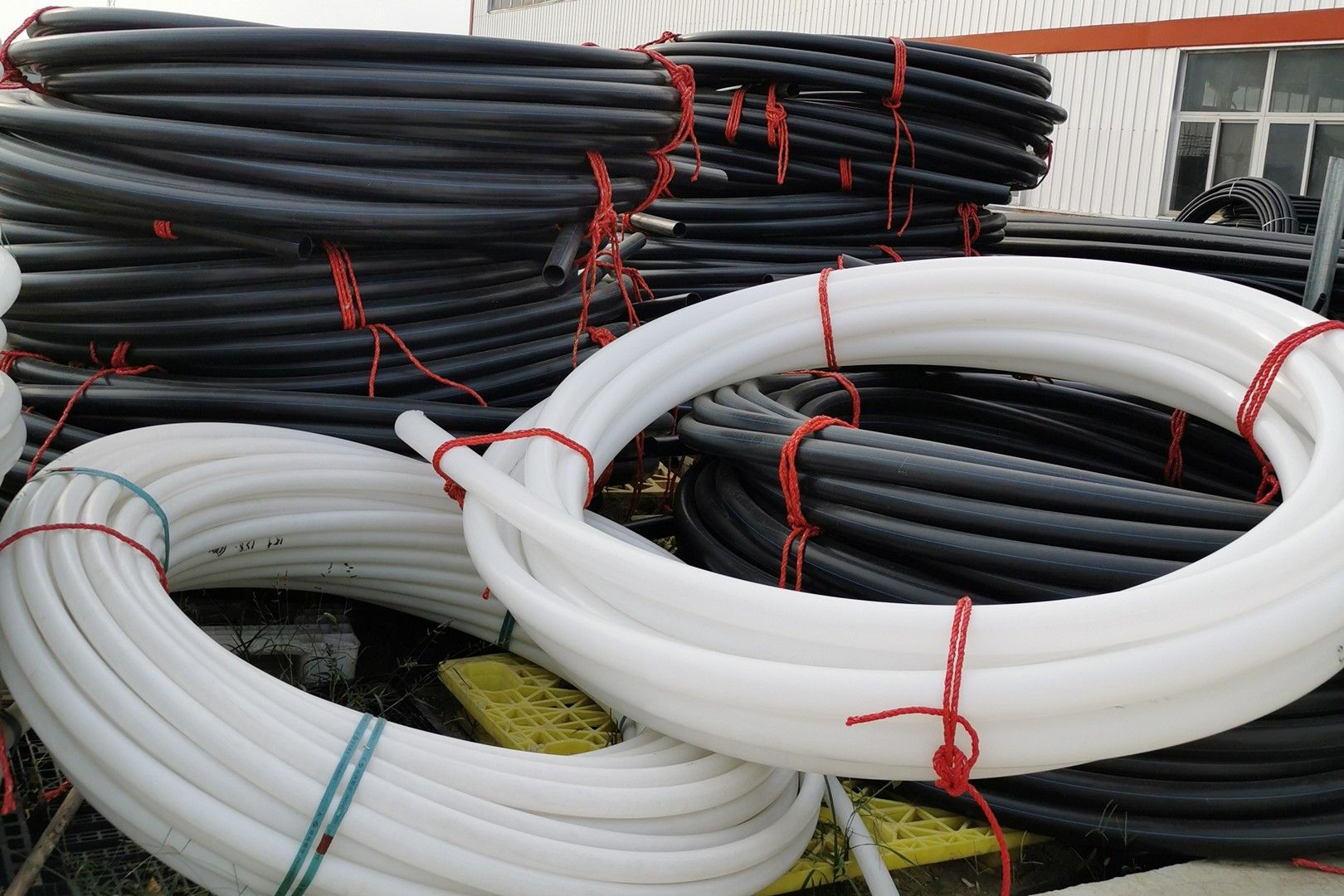

Tools and Equipment
What Type Of Pipe Is Used For Irrigation
Published: November 17, 2023
Discover the different types of pipes used for irrigation, including PVC, HDPE, and aluminum pipes. Find the right tools and equipment for your irrigation needs.
(Many of the links in this article redirect to a specific reviewed product. Your purchase of these products through affiliate links helps to generate commission for Chicagolandgardening.com, at no extra cost. Learn more)
Table of Contents
Introduction
Irrigation plays a vital role in modern agriculture and gardening, ensuring that plants receive a consistent and adequate water supply. A crucial component of any irrigation system is the pipe used to deliver water from the source to the plants. Choosing the right type of pipe is essential to achieve optimum performance and efficiency.
There are various types of pipes available for irrigation purposes, ranging from PVC to HDPE, polyethylene, aluminum, and steel. Each type has its own unique features, advantages, and considerations. Understanding the characteristics and benefits of each can help you make an informed decision about which pipe is best suited for your specific irrigation needs.
In this article, we will explore the different types of pipes commonly used for irrigation and discuss their pros and cons. We will also highlight the key factors to consider when selecting the right pipe for your irrigation system.
Whether you are a farmer, a gardener, or a landscaping professional, having a good understanding of irrigation pipes will enable you to design an effective and efficient irrigation system that meets your water distribution requirements.
PVC Pipes for Irrigation
PVC (polyvinyl chloride) pipes are widely used in irrigation systems due to their affordability, durability, and versatility. They are made from a synthetic plastic material that is resistant to corrosion, chemicals, and UV rays, making them suitable for both underground and above-ground applications.
One of the advantages of PVC pipes is their ease of installation. They are lightweight and come in various lengths and diameters, allowing for flexibility and quick assembly. PVC pipes also have smooth inner walls, which minimize friction and ensure efficient water flow.
Another benefit of PVC pipes is their resistance to root intrusion. Unlike other types of pipes, PVC pipes do not readily allow roots to penetrate and clog the system, reducing the risk of blockages and costly repairs.
PVC pipes are available in different pressure ratings, ranging from low pressure for drip irrigation systems to high pressure for sprinkler systems. This makes them suitable for a wide range of applications, from small residential gardens to large-scale agricultural operations.
However, PVC pipes do have a few limitations. They can become brittle when exposed to extreme temperatures, so it is important to choose the right PVC material for your climate. Additionally, PVC pipes may not be suitable for applications that require high tensile strength, such as deep well irrigation.
In summary, PVC pipes offer an affordable and durable solution for irrigation systems. Their ease of installation, resistance to corrosion, and smooth water flow make them a popular choice among farmers and gardeners. However, it is important to consider the temperature and application requirements before choosing PVC pipes for your irrigation system.
HDPE Pipes for Irrigation
HDPE (high-density polyethylene) pipes have gained popularity in recent years as an alternative to traditional irrigation pipes. HDPE pipes are made from a durable thermoplastic material that provides excellent resistance to chemicals, abrasion, and weathering.
One of the main advantages of HDPE pipes is their exceptional flexibility. They can be coiled for easy transportation and installation, making them ideal for projects that require long-distance pipeline systems. The flexibility of HDPE pipes also allows them to withstand ground movements and vibrations without cracking or leaking.
Another benefit of HDPE pipes is their ability to handle high-pressure applications. They have a high tensile strength, making them suitable for use in sprinkler systems and high-flow irrigation setups. HDPE pipes also have a smooth inner surface, reducing friction loss and improving water flow efficiency.
HDPE pipes are highly resistant to rust, corrosion, and chemical reactions, making them suitable for use in corrosive soil conditions or environments with aggressive water quality. Their longevity and resistance to degradation ensure a longer lifespan, resulting in reduced maintenance and replacement costs over time.
However, it is important to note that HDPE pipes can be more expensive compared to other types of pipes, such as PVC. Additionally, special equipment and expertise may be required for the installation of HDPE pipes due to their unique characteristics.
In summary, HDPE pipes offer excellent durability, flexibility, and resistance to chemicals and weathering. Their ability to handle high-pressure applications and their long lifespan make them a reliable choice for irrigation systems. However, the higher cost and installation requirements should be taken into consideration when choosing HDPE pipes for your irrigation needs.
Polyethylene Pipes for Irrigation
Polyethylene pipes, also known as PE pipes, are commonly used for irrigation due to their durability, flexibility, and resistance to environmental factors. These pipes are made from high-density polyethylene (HDPE) or low-density polyethylene (LDPE) material.
One of the main advantages of polyethylene pipes is their resistance to harsh weather conditions and UV radiation. They are designed to withstand extreme temperatures, making them suitable for both hot and cold climates. Polyethylene pipes also have excellent freeze-thaw resistance, ensuring reliable performance even in areas with freezing temperatures.
Flexibility is another key feature of polyethylene pipes. They can be easily bent and curved without the need for additional fittings, allowing for streamlined installations and reduced labor costs. The flexibility of these pipes also helps to minimize stress and friction during water flow, resulting in improved efficiency.
Polyethylene pipes are lightweight, making them easy to handle and transport. This characteristic is particularly beneficial for irrigation projects that require long pipeline systems or remote installations. Additionally, polyethylene pipes are corrosion-resistant and have a smooth inner surface, reducing the risk of clogs and ensuring efficient water distribution.
However, it is important to note that polyethylene pipes may not be suitable for high-pressure applications or areas with high traffic loads. Their lower tensile strength compared to materials like PVC or HDPE may limit their use in certain irrigation setups.
In summary, polyethylene pipes offer excellent durability, flexibility, and resistance to environmental factors. Their ability to withstand extreme temperatures, easy handling, and smooth water flow make them a reliable choice for irrigation systems. However, their lower tensile strength should be carefully considered for applications with high-pressure requirements or heavy traffic loads.
Aluminum Pipes for Irrigation
Aluminum pipes have been used in irrigation systems for many years, particularly in agricultural settings. These pipes offer a range of benefits that make them a popular choice among farmers and irrigation professionals.
One of the main advantages of aluminum pipes is their durability and resistance to corrosion. Aluminum is a non-ferrous metal that does not rust, making it suitable for irrigation systems where water quality may be an issue. The corrosion-resistant properties of aluminum ensure a longer lifespan, reducing the need for frequent replacements and maintenance.
Aluminum pipes also have high strength-to-weight ratio, making them lightweight yet sturdy. This characteristic allows for easy handling and installation, even in large-scale irrigation projects. Additionally, the lightweight nature of aluminum pipes reduces the need for additional support structures, saving both time and resources.
Another benefit of aluminum pipes is their excellent heat conductivity. They quickly dissipate heat, preventing excessive water temperature and minimizing the risk of damage to the plants. This makes aluminum pipes a suitable choice for irrigation in hot climates or where the water source is heated.
However, it is important to note that aluminum pipes can be more expensive compared to other types of pipes, such as PVC or polyethylene. They may also require special fittings and connections to ensure a secure and leak-free installation.
In summary, aluminum pipes offer durability, corrosion resistance, and excellent heat conductivity, making them a reliable choice for irrigation systems. Their lightweight nature and high strength-to-weight ratio contribute to easy handling and installation. However, the higher cost and specific installation requirements should be considered when choosing aluminum pipes for your irrigation needs.
Steel Pipes for Irrigation
Steel pipes have long been used in irrigation systems due to their strength, durability, and ability to handle high-pressure applications. These pipes are made from steel, a robust material that can withstand extreme conditions and provide reliable water distribution.
One of the main advantages of steel pipes is their exceptional strength and structural integrity. Steel is known for its high tensile strength, allowing it to withstand heavy loads and prevent damage under pressure. This makes steel pipes suitable for large-scale irrigation systems or areas that require high water flow rates.
Steel pipes are also highly resistant to corrosion, ensuring a long lifespan and minimizing maintenance requirements. This makes them a reliable choice for irrigation systems exposed to harsh environmental conditions or areas with aggressive water quality.
Additionally, steel pipes are fire-resistant, providing added safety and protection in case of fire incidents. This feature is particularly important in agricultural settings where fire hazards can be a concern.
However, it is important to note that steel pipes can be more expensive compared to other types of pipes, such as PVC or polyethylene. They are also heavier, which may require more labor and resources for handling and installation.
In summary, steel pipes offer exceptional strength, durability, and high-pressure handling capabilities for irrigation systems. Their resistance to corrosion and fire make them a reliable choice for demanding applications. However, the higher cost and weight should be carefully considered when choosing steel pipes for your irrigation needs.
PVC vs. HDPE vs. Polyethylene vs. Aluminum vs. Steel: Pros and Cons
When choosing the right pipe for your irrigation system, it is essential to consider the pros and cons of each material. Here is a comparison of PVC, HDPE, polyethylene, aluminum, and steel pipes:
PVC Pipes:
- Pros:
- Affordable and readily available
- Durable and resistant to corrosion
- Smooth inner walls for efficient water flow
- Easy to install and lightweight
- Does not allow roots to penetrate
- Cons:
- Potential for brittleness in extreme temperatures
- May not be suitable for high tensile strength applications
HDPE Pipes:
- Pros:
- Durable and resistant to chemicals, abrasion, and weathering
- Flexible and can withstand ground movements
- Smooth inner surface for efficient water flow
- Excellent freeze-thaw resistance
- Long lifespan and low maintenance
- Cons:
- Higher cost compared to other pipes
- Special equipment and expertise required for installation
Polyethylene Pipes:
- Pros:
- Durable and resistant to environmental factors
- Flexible and can be easily bent and curved
- Lightweight and easy to handle
- Smooth inner walls for efficient water flow
- Excellent resistance to extreme temperatures
- Cons:
- May not be suitable for high-pressure applications
- Lower tensile strength compared to other materials
Aluminum Pipes:
- Pros:
- Durable and resistant to corrosion
- Lightweight yet sturdy
- Excellent heat conductivity
- Long lifespan and low maintenance
- Cons:
- Higher cost compared to other pipes
- May require special fittings and connections
Steel Pipes:
- Pros:
- High strength and structural integrity
- Excellent resistance to corrosion
- Can handle high-pressure applications
- Fire-resistant
- Cons:
- Higher cost compared to other pipes
- Heavier and more labor-intensive for installation
In summary, each type of pipe has its own advantages and considerations. PVC pipes are affordable and easy to install, while HDPE pipes offer durability and flexibility. Polyethylene pipes are resistant to extreme temperatures, aluminum pipes have excellent heat conductivity, and steel pipes provide strength and corrosion resistance. Assessing your specific needs and project requirements will help determine the most suitable pipe material for your irrigation system.
Factors to Consider in Choosing the Right Pipe for Irrigation
Choosing the right pipe for your irrigation system involves considering several key factors. By evaluating these factors, you can ensure that the selected pipe material meets your specific requirements and provides optimal performance. Here are some factors to consider:
1. Water Pressure and Flow:
The water pressure and flow requirements of your irrigation system play a crucial role in selecting the right pipe. Some pipes, like PVC and HDPE, can handle higher pressure applications, while others may be more suitable for low-pressure or drip irrigation systems. Assessing your water pressure and flow needs will help determine the appropriate pipe material.
2. Durability and Longevity:
The durability and longevity of the pipe are essential considerations, especially for long-term irrigation systems. Assess the pipe’s resistance to corrosion, chemicals, weathering, and UV radiation. Choose a pipe material that can withstand the environmental conditions of your area and provide a long lifespan with minimal maintenance requirements.
3. Flexibility and Ease of Installation:
Consider the ease of installation and flexibility of the pipe, as this can impact the labor and time required for the project. Flexible pipes like HDPE and polyethylene are easier to handle and install, especially in projects that involve curved or challenging terrain. If the installation process requires specialized equipment or expertise, factor that into your decision-making process as well.
4. Cost and Budget:
Cost is an important factor to consider when choosing a pipe material for your irrigation system. Evaluate the initial cost of the pipe, including any necessary fittings and connectors. Additionally, consider the long-term cost implications, such as maintenance and replacement expenses. Finding a balance between cost and quality is crucial in selecting the most economical option without compromising on performance.
5. Environmental Impact:
Assess the environmental impact of the chosen pipe material. Consider factors such as recycling potential, energy consumption during manufacturing, and the carbon footprint associated with the production and disposal of the pipes. Opting for materials with lower environmental impact can contribute to sustainable irrigation practices.
6. Specific needs and challenges:
Consider any specific needs or challenges unique to your irrigation system. This could include factors such as soil conditions, water quality, exposure to extreme temperatures, or potential root intrusion. Choosing a pipe material that addresses these specific challenges can help ensure reliable and efficient water distribution.
By carefully evaluating these factors and prioritizing your requirements, you can make an informed decision when selecting the right pipe for your irrigation system. Consider consulting with irrigation professionals or experts in order to choose the most suitable pipe material for your specific needs.
Conclusion
Choosing the right pipe for your irrigation system is crucial for ensuring optimal performance, efficiency, and longevity. PVC pipes are affordable and durable, while HDPE pipes offer flexibility and resistance to environmental factors. Polyethylene pipes are known for their resistance to extreme temperatures, while aluminum pipes provide excellent heat conductivity. Steel pipes offer strength and corrosion resistance for high-pressure applications.
When making the decision, consider factors such as water pressure and flow, durability, ease of installation, cost, environmental impact, and any specific needs or challenges of your irrigation system. Assessing these factors will help you make an informed choice that meets your requirements and provides long-term benefits.
Remember, no single pipe material is suitable for all irrigation applications. It is essential to carefully evaluate your specific needs, budget, and project requirements before making a decision. Consulting with irrigation professionals or experts can also help ensure that you select the most suitable pipe material for your irrigation system.
Investing in the right pipe will not only ensure the efficient and effective distribution of water to your plants but also save you time, money, and resources in the long run. So, take the time to research, evaluate, and choose wisely to design an irrigation system that meets your needs and achieves optimal results.
